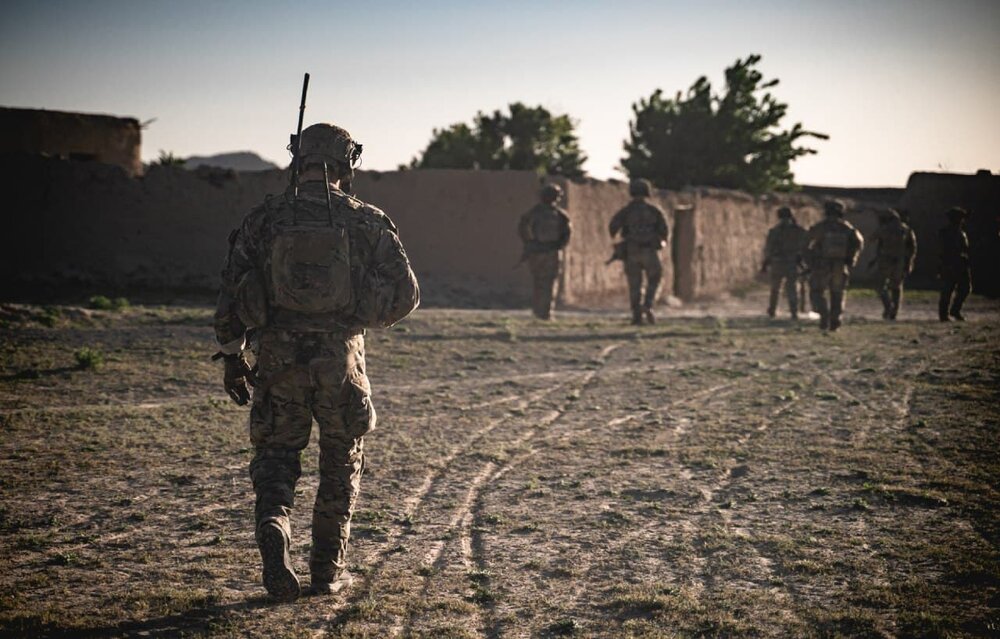Another Vietnam, this time in Afghanistan

TEHRAN – As the United States accelerates efforts to withdraw its forces from Afghanistan, Iran stands ready to draw on its relations with the Afghan government and the Taliban to help the war-torn country establish peace and security.
Over the last few days, exchanges of views between Iranian and Afghan officials have increased amid reports of Washington’s decision to withdraw its troops from Afghanistan by September 11.
On Friday night, Afghan Foreign Minister Mohammad Haneef Atmar spoke by phone with his Iranian counterpart Mohammad Javad Zarif to discuss the Afghan peace process less than a week after another telephone conversation with the Iranian foreign minister’s special envoy for Afghanistan Mohammad Ebrahim Taherian.
Underlining the need to protect Afghanistan’s democratic achievements over the past two decades and their connection to lasting peace, Zarif reiterated Iran’s full support for the Afghan peace process during his phone conversation with Atmar, according to a statement issued by the Iranian Foreign Ministry on Saturday.
The Afghan foreign minister, for his part, expressed satisfaction with the expanding relations between the two countries and appreciated Iran’s “effective role” in the Afghan peace process.
The two ministers also underlined the need for accelerating the conclusion and signing of a strategic cooperation document between the two countries.
The conversation was held against a backdrop of international debate over the United States’ upcoming withdrawal from Afghanistan. U.S. President Joe Biden announced on Wednesday that the U.S. should end “forever war” in Afghanistan, a tacit acknowledgment that the U.S. war in Afghanistan turned to another Vietnam War.
“We went to Afghanistan because of a horrific attack that happened 20 years ago. That cannot explain why we should remain there in 2021,” the U.S. president said. “We were attacked, we went to war with clear goals,” he noted. “We achieved those objectives. Bin Laden is dead and al-Qaida is degraded in Afghanistan, and it's time to end this forever war.”
But as the U.S. prepares for a withdrawal from Afghanistan’s endless war, Afghanistan seems far from being a stable, peaceful country. Clashes between the Afghan government’s forces and the Taliban still continue unabated, with the latter vowing to increase attacks against the U.S.-led foreign troops in the country after Biden outlined a drawdown that will begin May 1 and conclude by September 11.
The U.S. president said his troops will leave Afghanistan “responsibly, deliberately and safely” but this did not dissuade international observers from saying that the U.S. withdrawal will further complicate the situation in Afghanistan. Afghanistan continues to be one of the “deadliest places in the world to be a civilian”, according to Michelle Bachelet, the UN High Commissioner for Human Rights.
The Afghan peace talks are not moving smoothly. The talks are due to go ahead on April 24 and run through May 4, known officially as the Istanbul Conference on the Afghan Peace Process, and the co-conveners said they were committed to supporting a “sovereign, independent and unified Afghanistan,” according to the UN.
Having established working relations with both the Afghan government and the Taliban, Iran stepped in and intensified talks with the Afghans with the purpose of helping them reach a lasting peace. This was on full display over the last week when Taherian spoke by phone with Atmar.
The two diplomats exchanged views on the current developments in Afghanistan, especially the trend of intra-Afghan peace talks as well as the Istanbul meeting, the Iranian Foreign Ministry said in a statement last week. Taherian also highlighted Tehran’s all-out support for efforts to realize peace and lasting stability in Afghanistan.
The previous day, Taherian had also discussed with Chairman of Afghanistan’s High Council for National Reconciliation Abdullah Abdullah the latest developments in Afghanistan and the current trend of peace talks in the country.
Although Biden refused to allude to Iran when speaking about the responsibility of other countries such as Pakistan, Turkey, India, China and Russia in helping the Afghans overcome the difficulties of reaching a peace deal, Iran stands ready to make use of its diplomatic tools to help stabilize Afghanistan in the future.
Iran enjoys relations with both sides of the conflict, the Taliban and the Afghan government. And both sides seem to view Iran as a reliable peace broker. Earlier this year, a Taliban delegation led by deputy head of the group’s political bureau Mullah Abdul Ghani Baradar visited Tehran. They met with Zarif who told them that Iran welcomed the idea of formation of an all-inclusive government with the participation of all ethnic and political groups in Afghanistan.
On Friday, Zarif said the Taliban’s plan for reviving an “emirate” in Afghanistan is not viable, underlining the need for the militant group to engage instead in an all-inclusive diplomatic process aimed at achieving “broad-based” peace in the war-ravaged country, according to Press TV.
Speaking at a panel discussion session of India’s flagship Raisina Conference, Zarif said Iran held talks with the Taliban to convince the group that “there is a need for a broad-based, inclusive peace in Afghanistan, and that the Taliban should be a part of that peace” instead of attempting to “control” the process.
The chief diplomat also said that Iran pressed upon the Taliban that his country is prepared to provide any forum for the Taliban and other groups in Afghanistan — particularly the government of Afghanistan — to engage in a serious talk for a movement forward; not threats, not violence, but working for peace within the constitutional framework of Afghanistan.
SM/PA
Leave a Comment